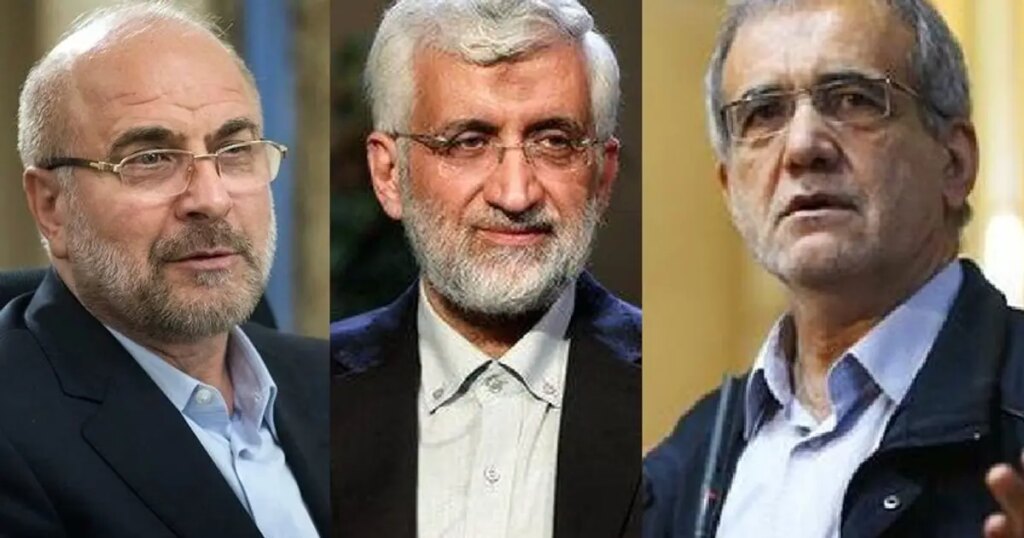A week into the election campaign in Iran, few are talking about three of the five hardline candidates: Amir Hossein Ghazizadeh Hashemi, Tehran Mayor Alireza Zakhani and former Justice Minister Mostafa Pourmohammadi.
Nearly all official and unofficial polls concern the likely election of three other candidates: Parliament Speaker Mohammed Bagher Ghalibaf, MP Massoud Pezeshkian and former nuclear negotiator Saeed Jalili.
Hadrain MP Amir Hossein Sabeti In a post on social media platform X, he referred to the results of a confidential government poll conducted last week which gave ultra-conservative Mr Jalili a 23 percent chance of being elected Iran's next president, compared with Mr Ghalibaf at 21 percent and Mr Pezeshkian at 13 percent.
meanwhile, A poll conducted by Iranian journalist Mariam Shokrani On her Instagram page, out of 3,374 users, statistically, about 88 percent of Instagram users said they would not vote in the presidential election.
In another poll she conducted on her X account among 6,433 users, about 73.99% said they would not vote, which is close to the figures leaked by the current government, a legacy of the administration of former President Ebrahim Raisi, which put the number of people who said they had no intention of voting at 80%.
Iran's government polling agencies include those affiliated with the Ministry of Culture, Ministry of Information, Ministry of Interior, state television, and major government news agencies such as IRNA and ISNA. Results are usually kept confidential and only made public when it is politically expedient.
Some social media users have questioned the veracity of the polls on the likely candidates, with one user posting a lengthy 16-part post on X proving that between Jalili and Ghalibaf, the former was the front-runner with over 80% probability.
Iranian media outlets, while cautious about revealing what they know, have their own ways of assessing the candidates' potential. The government has arrested journalists, harassed the media, and pressured them to portray the elections as welcome and nothing else. Authorities appear wary of reports that convey a sense of rivalry or the degree of support for individual candidates.
At the same time, the smear campaigns seen in Iran's media during past elections are now moving to social media, carried out by users who use pseudonyms to avoid repression.
Meanwhile, the Revolutionary Guards, which have played a key role in contentious elections since 2005, sent out a spokesman last week to insist that the Guards would not interfere in the elections in any way. Ramazan Sharif said the IRGC would not take part in any activities. Support or oppose any candidate.
However, none of these figures or statements can be trusted. Iranian media and politicians have demonstrated that they have no concept of accuracy when using figures. For example: The ultra-conservative candidate, Jalili, “He intends to make up for centuries of Iran's backwardness in a few years,” he said. Meanwhile, over the past few years, he and other hard-liners have regularly praised the Islamic Republic for transforming Iran into a developed country.
Quoting the remarks, social media user Darius said: “Anyone who thinks centuries of backwardness can be made up for in a few years is a disillusioned and mistaken human being who needs to be hospitalised.”

